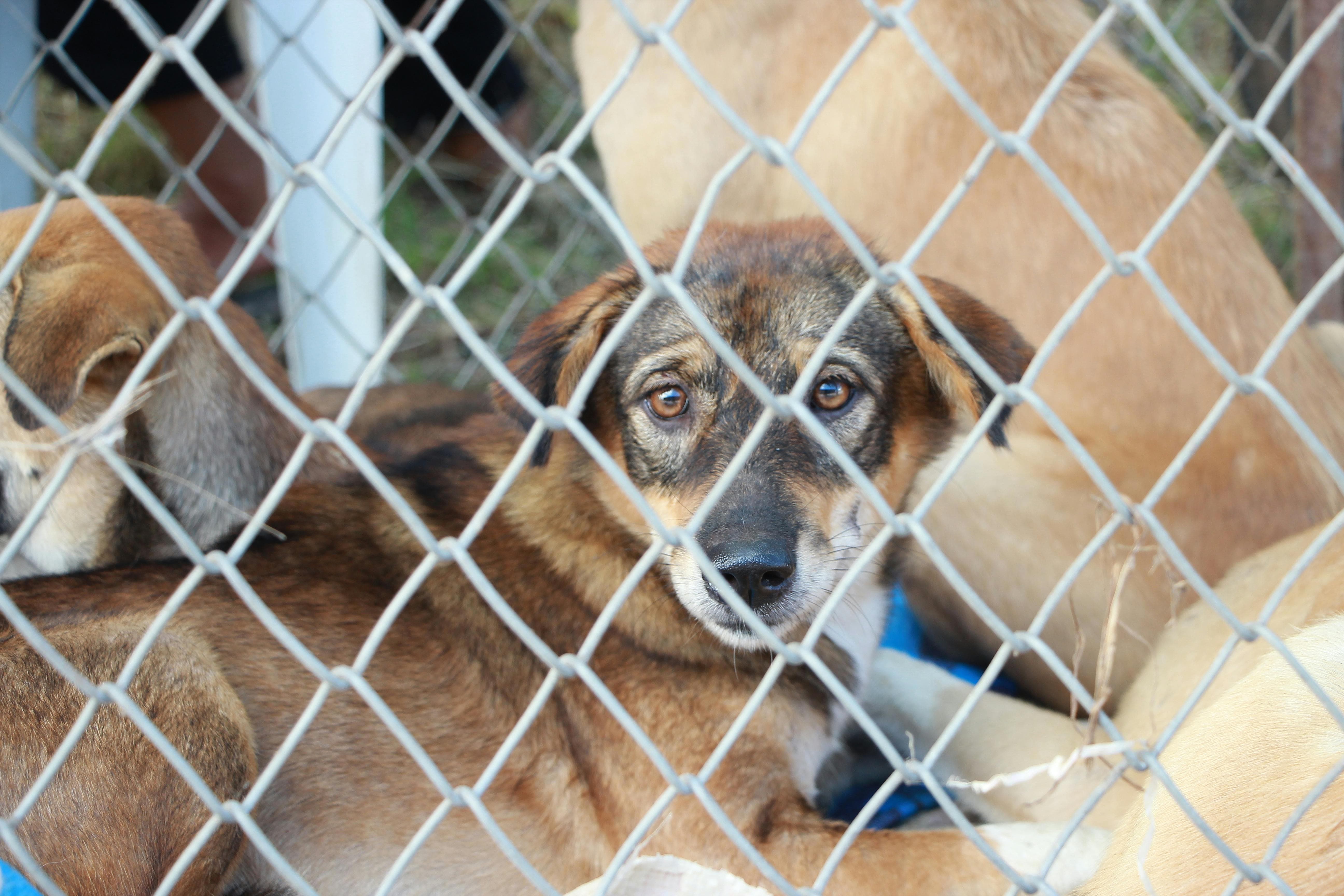
Infectious Tracheobronchitis (Kennel Cough)

Our guide has been authored by qualified veterinarians, but should not be taken as substitute for medical advice or professional veterinary consultation. If your pet displays any unusual symptoms, we strongly advise seeking guidance from a veterinarian
Understanding Infectious Tracheobronchitis (Kennel Cough) in dogs
This Canine Infectious Respiratory Disease Complex (CIRDC) is highly infectious and common in dogs. Kennel cough, the condition’s everyday name, causes coughing and ocular/nasal discharge that can last several days to weeks.
The disease is highly contagious and transmitted via direct contact, contaminated surroundings, and shared water and food bowls. This is also the reason behind the disease’s nickname, as dogs spending time in shared spaces tend to catch it. However, it’s important to note that dogs might get infected at the groomer, daycare, parks, and even on daily walks upon exposure to infected saliva.
Kennel cough isn’t life-threatening, and most dogs will recover without treatment. Still, some complications may occur, and paying attention to symptoms that require a visit to the clinic is crucial.
Infectious Tracheobronchitis (Kennel Cough)'s Causes: Uncovering Triggers
Kennel cough isn’t the name of a specific disease but a group of pathogens with similar symptoms.
- Viruses: Most cases are caused by a viral infection of viruses such as adenoviruses, parainfluenza, distemper, and coronavirus (yes, that’s right – this is a different variant, but still coronavirus). More than one virus is present in many cases.
- Bacteria: Some cases are caused by a bacterial infection, which typically appears as a secondary infection following a viral one. The most common bacteria is Bordetella. Additional possible bacteria include Mycoplasma or Streptococcus.
 Recognizing Infectious Tracheobronchitis (Kennel Cough): Signs and Symptoms
Recognizing Infectious Tracheobronchitis (Kennel Cough): Signs and Symptoms
- Characteristic cough: A strong, dry cough that sounds like an attempt to clear something blocking the dog's throat. It is accompanied by a full-body stretch and often ends with clear or foamy saliva discharge.
- Changed bark: You’ll see the dog attempting to bark but only being able to produce a high pitch or unable to make any sound at all.
- Discharge: Runny nose, eye discharge, difficulty breathing during sleep, hyperventilating.
Kennel cough typically doesn’t cause significantly low energy or appetite. In fact, dogs suffering from it may seem healthy. Still, bacterial complications or lower airway infection may lead to such signs, especially with very young or old dogs, who may also have high fever and less sharp coughs that are more ‘wet’.
 Infectious Tracheobronchitis (Kennel Cough) Diagnosis: How it's Identified
Infectious Tracheobronchitis (Kennel Cough) Diagnosis: How it's Identified
The veterinarian suspects kennel cough when a dog that actively spends time around other dogs arrives with a charismatic cough that sounds like something is stuck in its throat. Upon examination, the throat and trachea area may appear tender to the touch.
Tests will also include monitoring temperature and respiratory rate. Stethoscope auscultation will be performed to rule out abnormal sounds. In some cases, fear of complications will require blood tests and chest X-rays to check for pneumonia. Respiratory infections may also call for a sample of airway fluid (BAL) to be taken under anesthesia and sent for bacteria culture testing.
 Treating Infectious Tracheobronchitis (Kennel Cough): Options and Approaches
Treating Infectious Tracheobronchitis (Kennel Cough): Options and Approaches
- Vaccinations: The core dog vaccine DHPP covers some participating viruses: distemper, adenovirus, and parainfluenza. Most dogs are effectively vaccinated every 1-3 years, which is enough to prevent the disease and reduce symptoms. There is also a specific nasal vaccine for Bordetella, which addresses the bacteria causing most complications.
- Quarantine: Most cases do not require medical treatment, but isolating the affected dog from unvaccinated dogs can help prevent further transmission. We also recommend avoiding shared food and water bowls.
- Rest: It is important to ensure your dog has a pleasant, well-ventilated, and relaxing environment to rest during treatment. If your dog suffers from kennel cough, try switching from a collar to a harness to minimize pressure on the neck and reduce coughing.
- Medication: Mild cases may not need any treatment. Antibiotics are prescribed if a bacterial infection, specifically Bordetella, is identified. Chosen antibiotics will typically be Augmentin, Azenil, or both.
Infectious Tracheobronchitis (Kennel Cough): Surprising Facts

It’s always recommended to refrain from smoking near dogs, but even more so near those who suffer from the disease. The irritation from the smoke can significantly slow down recovery and lead to complications.

Generally speaking, kennel cough isn’t dangerous to humans, except for a few rare cases of Bordetella bacterium transmission. People with weaker immune systems, however, should take extra care.

The incubation period for kennel cough ranges from two to 14 days, and dogs may remain asymptomatic carriers for several months, capable of spreading the infection without showing any symptoms.
 Vet's Tip: Dealing with Infectious Tracheobronchitis (Kennel Cough)
Vet's Tip: Dealing with Infectious Tracheobronchitis (Kennel Cough)
As mentioned, a specific vaccine protects dogs from the Bordetella bacteria. Remember that it may cause mild illness and doesn’t last very long. Still, the vaccine can help prevent complications. Consult with your vet regarding the right time to receive the vaccine. It’s typically recommended a few weeks before staying at a crowded place for dogs, such as daycare.




Price Tag

Latest in Research and Treatments
2023 was unusual in terms of reported kennel cough cases. More than double the usual number was registered, even more in some regions across North America. It seems that the outbreak is subsiding at the moment, but the exact cause remains unclear and is still being researched. Contributing factors may include post-COVID overcrowded municipal facilities or a new pathogen that has recently emerged.
Did you know?
Enrolling in Animalia Pet Insurance
while your pet is healthy is a wise decision.
Waiting until a disease develops means it won't be covered.






